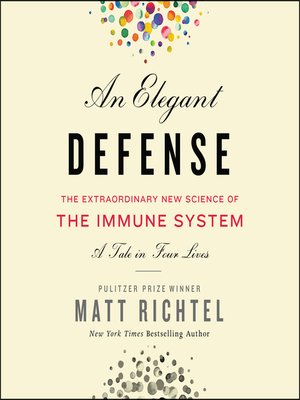
Richtel’s childhood friend Jason Greenstein is battling a stubborn form of Hodgkin’s disease that seems to be invisible to his immune response. Richtel explains all of this science through the stories of four individuals deeply affected by their immune systems. And that balance is central to our health.Īn Elegant Defense offers a sweeping overview of immunology’s history, from Élie Metchnikoff’s observations in the 1800s of immune cells swarming splinters in starfish larvae to recent discoveries underpinning cancer immunotherapy. (Mar.“It is a system precisely and delicately tailored to stay in balance, keep the peace and do as little damage as possible to us and our surroundings,” he writes.

Agent: Laurie Liss, Sterling Lord Literistic. In the course of examining “the broader environment surrounding our immune systems,” Richtel creates a hard-to-put-down account of the body’s first line of defense. He also provides close-ups on the case histories of four people, including two women suffering from autoimmune disorders, interwoven through discussions of myriad present-day concerns: the recent spike in allergies in children the dangers of overprescribed antibiotics the problems that modern, antiseptic, and stress-filled lifestyles pose for the immune system and the growing importance of monoclonal antibody therapeutics.

This is life inside your body”), Richtel covers the history of research into the field, including Jacques Miller’s thymectomies on mice in the 1950s and ’60s, which led to the discovery of T cells, a key immune system component Peter Doherty’s more recent work on the major histocompatibility complex or MHC, “the single most varied or polymorphic of all human genes” and, in the ’90s, the contributions of multiple scientists to HIV research. In punchy prose (“Picture a festival-a wide-open, take-all-comers bash.

New York Times reporter Richtel ( A Deadly Wandering) takes on “one of the world’s most complex organic systems” in this entertaining survey of the science of immunology.


 0 kommentar(er)
0 kommentar(er)
